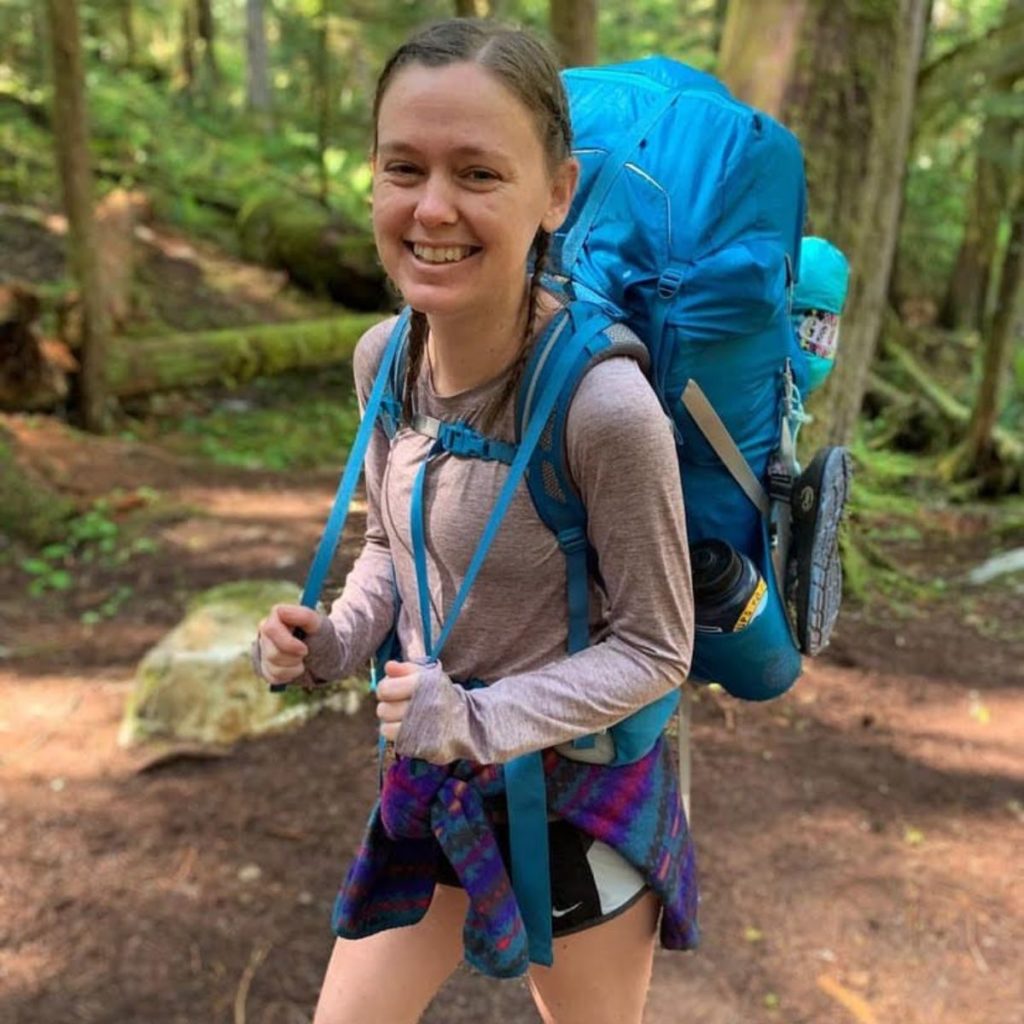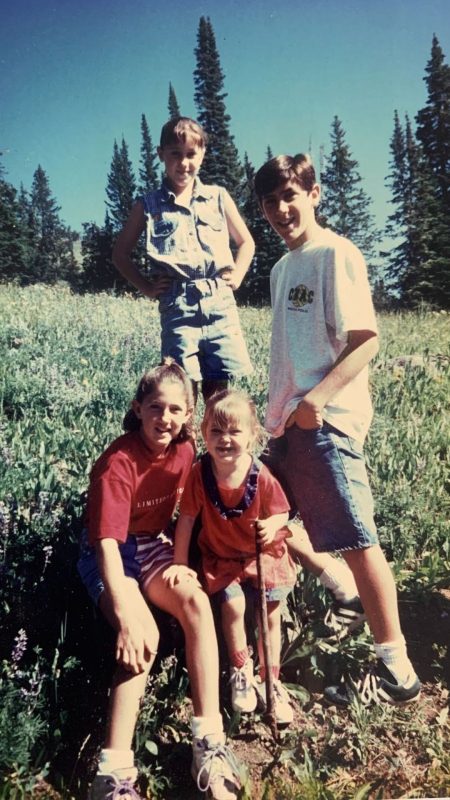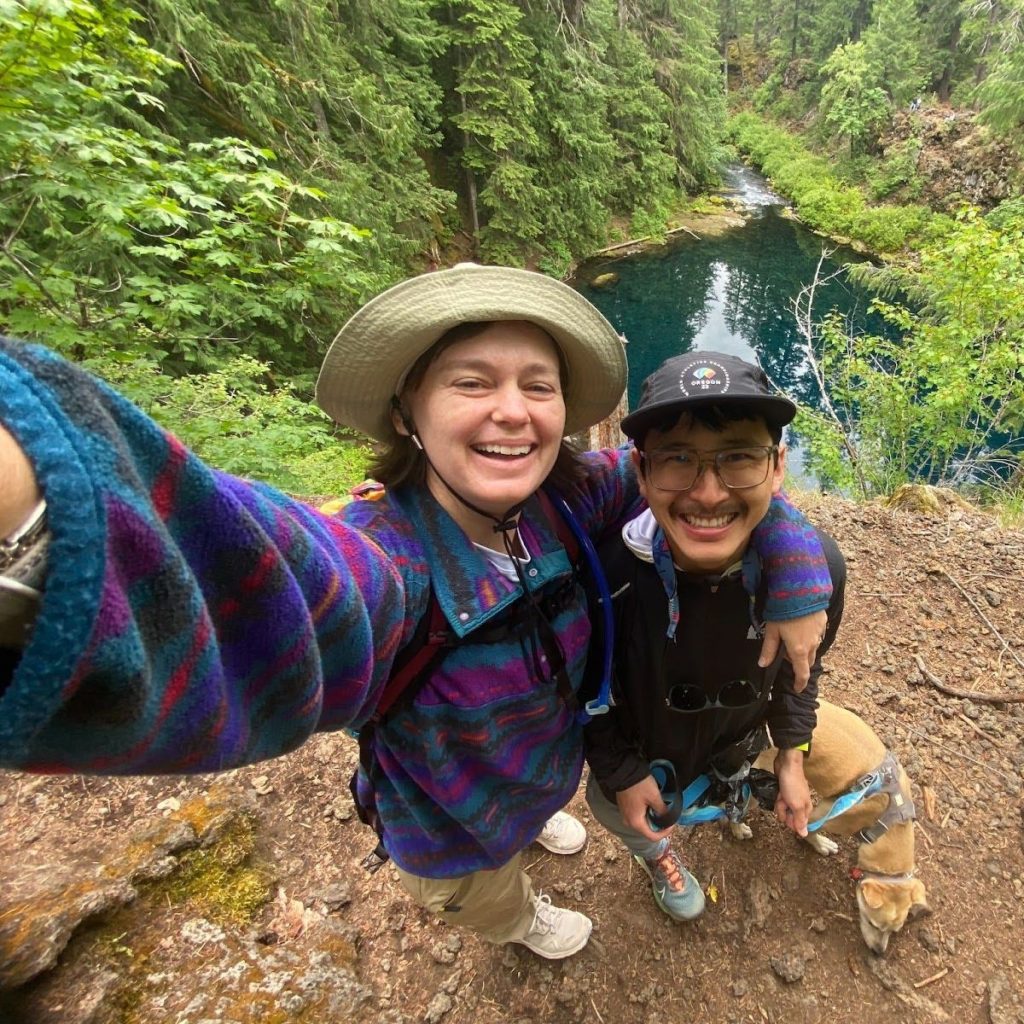Articles
What we’re contemplating, doing, and reading.
Staff Spotlight: Tori Higa-Sarris, Program Director, Public Programs
Compassion Institute is pleased to introduce our committed staff who are developing and delivering compassion-based programs for individuals and organizations that promote personal and societal well-being.
Below, you have an opportunity to get to know Tori Higa-Sarris, our dedicated program director for our programs that are available to the general public — including Compassion Cultivation Training© (CCT™), CCT™ Teacher Training, and the Tonglen Intensive.
Where did you grow up and how did the way you grew up impact your interest in compassion?
I grew up in Southern California, the youngest of four children. As the youngest child — with a significant age gap between myself and my three older siblings — it would have been easy for my siblings to ignore me while they hung out with each other and their own friends. Instead, my sisters and brother involved me in everything. When I was 7 years old, my sister Jenny would let me join her soccer teammates at sleepovers and allowed me to be part of whatever games they concocted for the night. When I was 11, my sister Andi would pop me in the car with her friends and take me wherever they went — to get bagels, to go to the beach, and to loudly (and poorly) sing along to the latest music. When I turned 16, my brother Alex taught me to drive, a task only the bravest person would volunteer for.
My siblings might not identify these as “compassionate moments,” but to me — who looked up to them — being involved without having to ask was integral in my understanding of compassion from a young age.
They never once made me feel like a bother or like they were inconvenienced by my presence. In hindsight, I’m sure there were times that they didn’t enjoy the shadow of their little sister, but they never once made me feel like I didn’t belong. The simple act of inclusivity absolutely shaped who I am and helped me understand how basic the concept of compassion can be.
What is your background related to this work? What other studies, jobs, practices, or volunteer work prepared you for what you're doing now?
I have spent my career working in nonprofits, seeking to support and better my community. I previously worked in the Seattle area on various programs focused on improving financial security, food security, access to housing, and racial disparities. Compassion was integral to the work I did at the time — both compassion for people in difficult situations and self-compassion while I worked a very emotionally draining job.
I struggled with self-compassion during this time of my career and I wish that I had the tools then that I had now. Because I was working with people who were often in crisis, it was very easy to work long hours and beat myself up when it felt like I wasn’t making enough of an impact or moving fast enough to support people in crisis.
It was when I moved from Seattle to Central Oregon that I first heard about Compassion Institute (CI), and it was like a breath of fresh air. CCT™ provided me with all the tools I had been missing in my career. CCT™ put names to what I had been feeling and struggling with. It gave me formal practices to utilize during difficult moments. For me, this 8-week course allowed me to return from a deep place of burnout and be better able to serve my community.
Tori on a family trip with her siblings in the mid 1990s. Jenny top left, Alex top right, Andi bottom left, Tori bottom right.
What transformations have you witnessed from your unique vantage point as a department head for our public courses?
I have had the unique opportunity to attend more CCT™ and compassion classes than I can count. In my first role at CI in 2020, I provided live technical support for all of our public classes and, throughout my various roles at the organization I supported Law Enforcement (Courageous Heart), Health classes, as well as CCT™ Teacher Training. I have had the privilege to witness thousands of people’s journeys with compassion, in addition to my own unique journey.
One of my favorite things to witness is how compassion brings people together. The first session of a course will see 20 strangers come together with their own reason for registering for compassion training. By the last session they are no longer strangers, but a community. I love seeing how relationships build and community is maintained based on nothing but the shared value of compassion.
Everyone registers for compassion classes seeking something different, and no compassion journey is the same. Some people join through their work as police officers, health care providers, or educators. Some join because they’re going through a personal difficulty. While others participate because they feel like they need to change something fundamental about their life. And yet, the mere fact that we are all seeking the beautiful tool of compassion means we have something in common.
What would your friends, family, or co-workers say has changed about you?
When I presented this question to my family, my sister Jenny said: “Tori has learned to recognize herself as an autonomous being. Learning to slow down when activation flares up and rethink old narratives that don’t honor her path. She has shown herself and our family how to be generous — with love and care from one’s center rippling outward and inward continually. Tori has shown us a path of mindfulness that helps herself and those around her reflect on humanistic values which honor compassion and care for all.”
These deeply kind words reflect my own feelings about my journey with compassion and would feel true for anyone who takes CCT™ and embarks on their own compassionate journeys.
Tori, her husband, Justin, and their dog, Bowie, hiking in Central Oregon.
What component of CCT™ do you use most in your everyday life?
Compassion is like breathing. The concept of compassion can feel so intimidating and we can easily feel like we are not doing enough or are not educated enough to call ourselves compassionate beings.
Yet, CCT™ simply awakens concepts that already exist within each of us. CCT™ gave me the language to understand feelings that I already had. If you are someone who is seeking out compassion training, you are already primed to be a compassionate being and likely already move through the world with compassion.
All that to say, I use my CCT™ knowledge and practices everyday. Compassion is present in the calming breaths I take during difficult moments, in the love I have for my community, when I struggle with challenging conversations, and in the moments when I seek self-care. And CCT™ helps me find compassion in each day.
Discover upcoming compassion training sessions — including the 8-week Compassion Cultivation Training© (CCT™).




